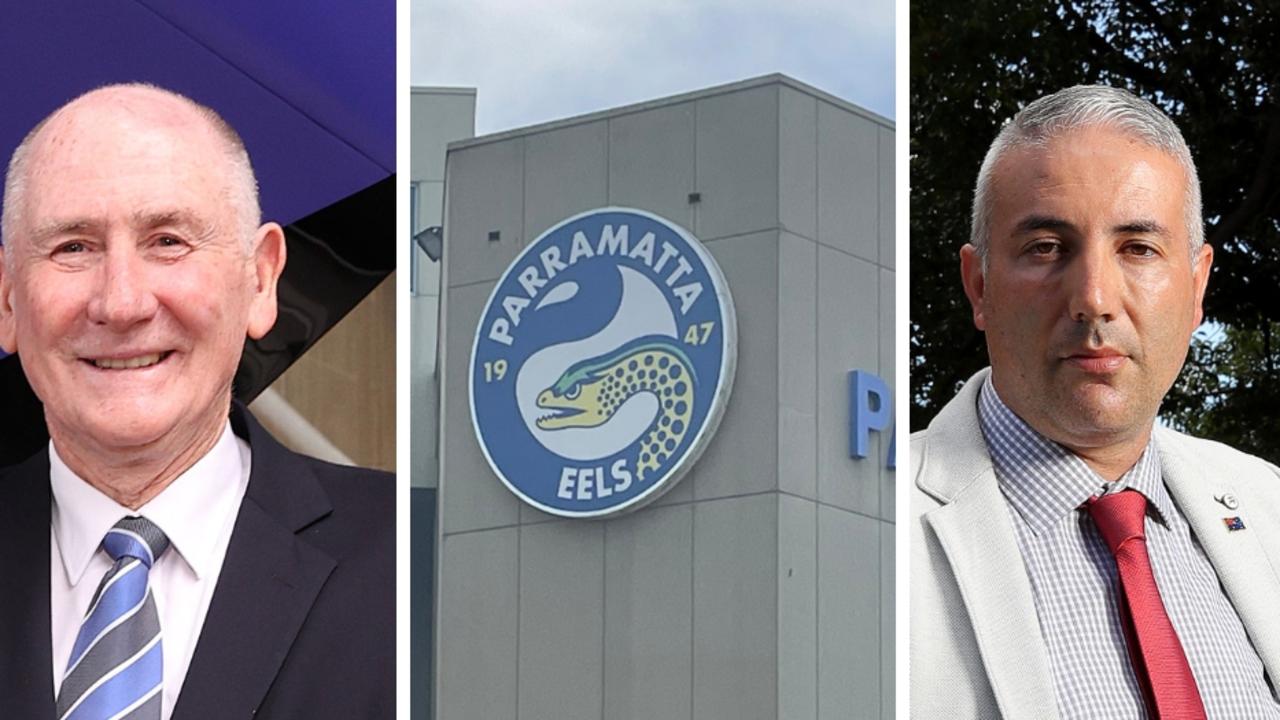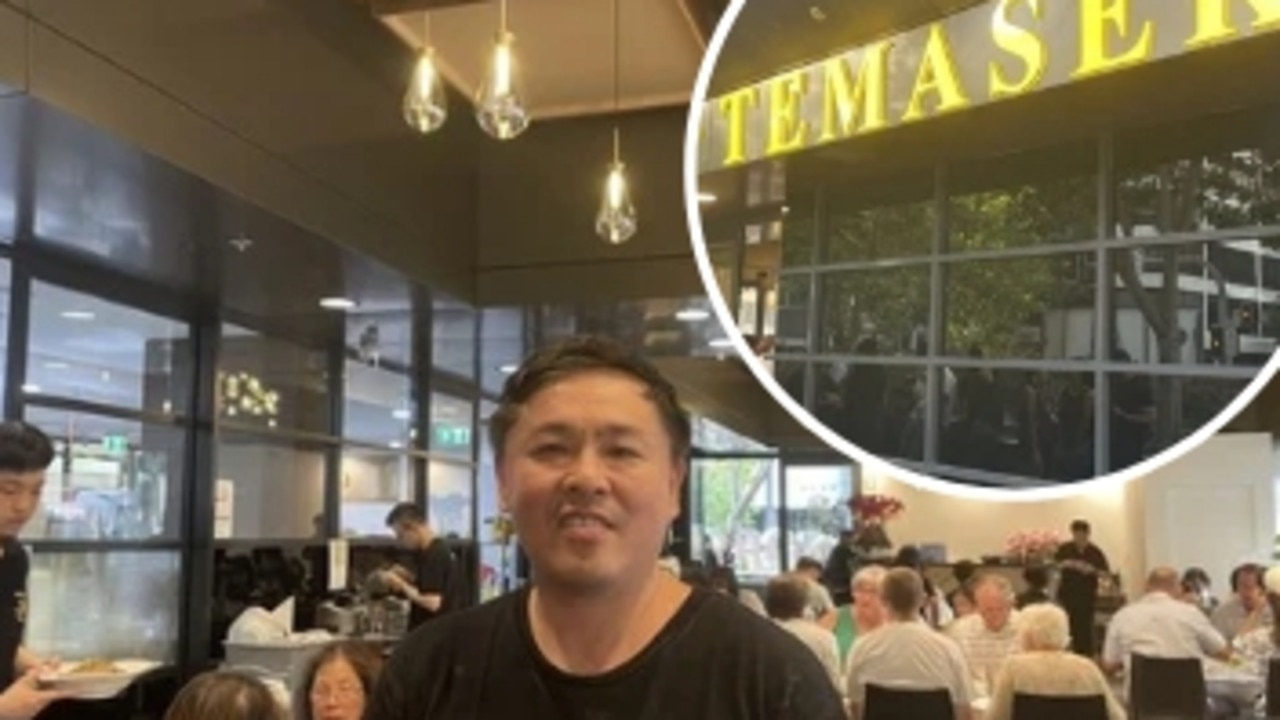Sydney’s first multilingual childcare centre, Angsana, to open at North Rocks
Crayons, finger painting and naps are taking a back seat at Sydney childcare centre where the city’s first multilingual preschool will expose youngsters to three major languages.
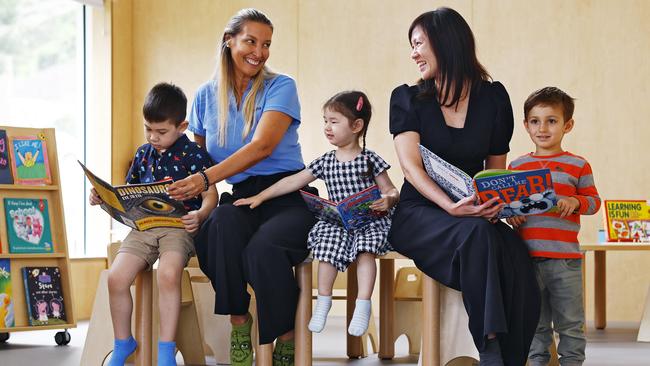
Parramatta
Don't miss out on the headlines from Parramatta . Followed categories will be added to My News.
Crayons, finger painting and naps are taking a back seat at a childcare centre in Sydney’s northwest where the city’s first multilingual preschool is teaching children as young six weeks to become well versed in Mandarin, Spanish and English.
After a seven-year build, the $20m Angsana Early Learning Centre opened in December with the aim to expose children to the world’s three major languages at an early age when their brains absorb languages rapidly.
Four Spanish-speaking and five Mandarin educators will use their native tongue to teach the languages through gardening, cooking, speech, drama, physical education, music and numeracy lessons.
Centre director Yolanda Rubatto Ivanov said the aim was to make children fluent in three languages by the time they graduated the preschool which has enrolled 40 children but has the capacity for 99 youngsters up to six years.
Mrs Rubatto Ivanov said teaching children multiple languages from an early age increased their problem solving skills, cognitive abilities and helped them communicate confidently in a globalised world.
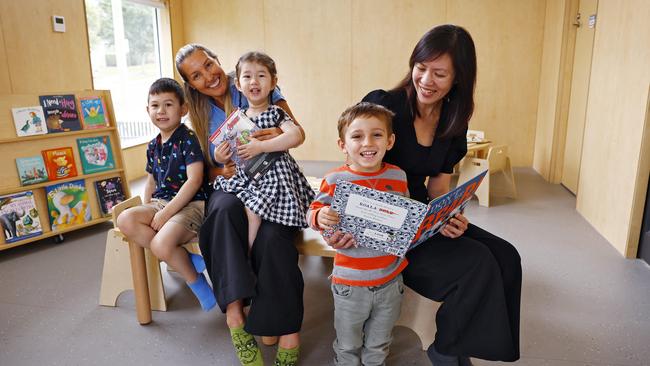
“I have two teenage boys and they can speak perfect English with an Australian accent and at the same time they can speak Spanish with a Latino accent, so you can see how it’s easy to learn a different language from a young age,’’ she said.
“It also positively influences brain development, making them more adaptable and proficient in communication.’’
Thomas and Helen Duffy’s children Daniel, 4, and Charlotte, 2, are already excelling at Mandarin, which helps them communicate with their Chinese maternal grandparents.
“Their progress has been amazing,’’ Mr Duffy said.
The North Rocks scientist and his wife, an accountant, also believe in the cognitive benefits of learning a second language.
“It means your brain functions in a more efficient way and then that leads to a variety of benefits including improved concentration, the ability to multitask is improved, just general creativity and articulation is improved,’’ Mr Duffy said.
He also points out that learning English, Spanish and Mandarin means the ability to communicate with “just about 80 per cent of the world’s population.
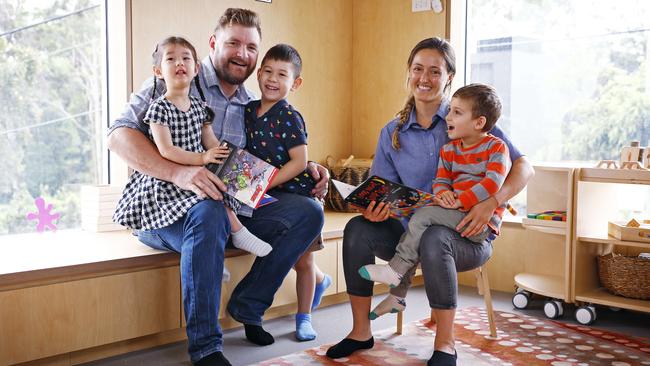
“The number of people on the planet that speak Mandarin is something like four or five to one compared to English, so just having a basic understanding of Mandarin means that you can now, regardless of where you are around the world, communicate with a substantially higher number of the local population,’’ he said.
“If children are our future the students of Angsana are our first translators.’’
North Rocks parents Clement and Denise Lee’s youngest son, four-year-old Koen, attends Angsana where he is picking up Spanish along with his mum and dad’s mother tongue, Mandarin.
Mrs Lee, an early childhood educator, and her husband, a civil engineer, already exposed their three sons to Mandarin through their Singaporean heritage.
She wants her children to feel connected by learning several languages, which they can also use in social settings.
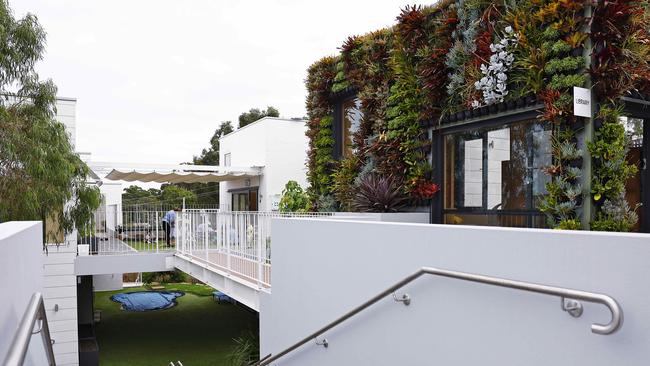
“Me being Asian, when I go to places like Burwood or Eastwood, I kind of know what they’re saying and I think it brings a different level of communication and building relationships,’’ she said.
There is already a thriving Asian community in North Rocks.
A total of 22.3 per cent of 9000 people have Chinese heritage, which makes it the largest ancestral group in the suburb.
Between 2023 and 2028, its population is forecast to rise by 8.1 per cent, with 1.6 per cent of children aged under four and 2.5 per cent of children aged five to account for the increase.
Angsana co-founder Shen-Lene Gan said children needed more than one language to survive in a globalised society.
“Just looking around us here in greater Sydney, there are at least five different communities speaking one language other than English,’’ she said.
“By doing so, we hope to encourage our children to easily connect with others, not only here but also around the world.’’
Fees start from $150 a day.



